When it comes to heart health, cholesterol is always an important indicator to control. High bad cholesterol (LDL) can increase the risk of plaque formation in the arteries, leading to serious cardiovascular diseases. One of the simple and natural ways to help lower cholesterol is to add pumpkin seeds to your daily diet.
1. Pumpkin seeds – Superfood rich in nutrients
- 1. Pumpkin seeds – Superfood rich in nutrients
- 2. How do pumpkin seeds help lower cholesterol?
- 3. How to consume pumpkin seeds for optimal results
- 4. Other health benefits of pumpkin seeds
- 5. Notes when consuming pumpkin seeds
Pumpkin seeds are the seeds of pumpkins, usually cream-colored, oval and flat, with a nutty or slightly sweet taste. They are a common food but rich in nutritional value.
Pumpkin seeds provide a large amount of high-quality protein, fiber, healthy fats, vitamins and minerals, especially magnesium and zinc. In addition, pumpkin seeds also contain many antioxidant compounds, which help the body reduce cholesterol naturally and protect heart health.
According to the American Heart Association (AHA), the polyunsaturated fats in pumpkin seeds play an important role in reducing bad cholesterol (LDL) and increasing good cholesterol (HDL), thereby helping to improve overall heart health.

Pumpkin seeds are rich in polyunsaturated fats, protein and fiber, which help control cholesterol, increase good cholesterol and promote effective blood circulation.
2. How do pumpkin seeds help lower cholesterol?
2.1 Polyunsaturated fats in pumpkin seeds are good for the heart
Polyunsaturated fats are fats that the body needs but cannot synthesize on its own, including essential fatty acids such as omega-3 and omega-6. According to WebMD, a serving of pumpkin seeds contains about 2.5 grams of omega-6 and 22 mg of omega-3. These fats not only help reduce bad cholesterol but also participate in the process of reducing inflammation, enhancing blood vessel function and improving heart rate.
In addition, pumpkin seed protein is a complete protein, similar to soy protein, containing all the essential amino acids that the body cannot synthesize on its own. This protein helps maintain muscle, supports metabolism and creates a feeling of fullness for a long time, which is beneficial for weight control - an important factor in reducing the risk of cardiovascular disease.
2.2. Effects of pumpkin seeds on vascular health
Research on Healthline shows that pumpkin seeds have the ability to increase nitric oxide in the body. Nitric oxide plays an important role in widening blood vessels, helping blood flow better and reducing the risk of plaque formation in the arteries. This process contributes to maintaining stable blood pressure and reducing the risk of atherosclerosis - the main cause of cardiovascular disease.
A 12-week study conducted by the National Institutes of Health (NIH) on postmenopausal women found that taking a pumpkin seed oil supplement significantly reduced diastolic blood pressure by 7% and increased HDL (“good”) cholesterol levels by 16%. These results demonstrate that pumpkin seeds are not only good for the heart, but can also help control blood pressure and improve blood cholesterol levels.
3. How to consume pumpkin seeds for optimal results
To maximize the benefits of pumpkin seeds in lowering cholesterol and improving heart health, it is important to be careful how you prepare and consume the seeds.
3.1. Choose fresh and safe pumpkin seeds
Instead of buying pre-processed pumpkin seeds, it is better to take the seeds directly from the pumpkin and wash them to remove the orange flesh surrounding them. This helps reduce the risk of exposure to unwanted preservatives or impurities.
3. 2. Eat raw or roasted pumpkin seeds
Pumpkin seeds can be eaten raw or roasted. If you roast them, mix them with a tablespoon of olive oil and spread them on parchment paper, then bake them for 30-40 minutes at high heat. Roasting not only increases the antioxidant content, but also aids digestion and enhances the natural nutty flavor.
3.3. Incorporate pumpkin seeds into dishes
Aside from eating them directly, you can add pumpkin seeds to your diet in several ways:
- Mix into breakfast cereal or salad for extra nutritional value.
- Add to smoothies for healthy fats and protein.
- Make hummus with other ingredients to create a nutritious dish.
- Bake cookies or bread with pumpkin seeds for added flavor and health benefits.
Experts recommend that the healthiest and best way to eat pumpkin seeds is to roast them yourself from fresh fruit, ensuring both safety and preserving nutrients.
3.4. Reasonable consumption
While pumpkin seeds are great, consuming too many can lead to excess calories and fat. A serving of pumpkin seeds, about 28-30 grams per day, is enough to provide cardiovascular benefits, providing protein, fiber, and healthy fats without causing weight gain.
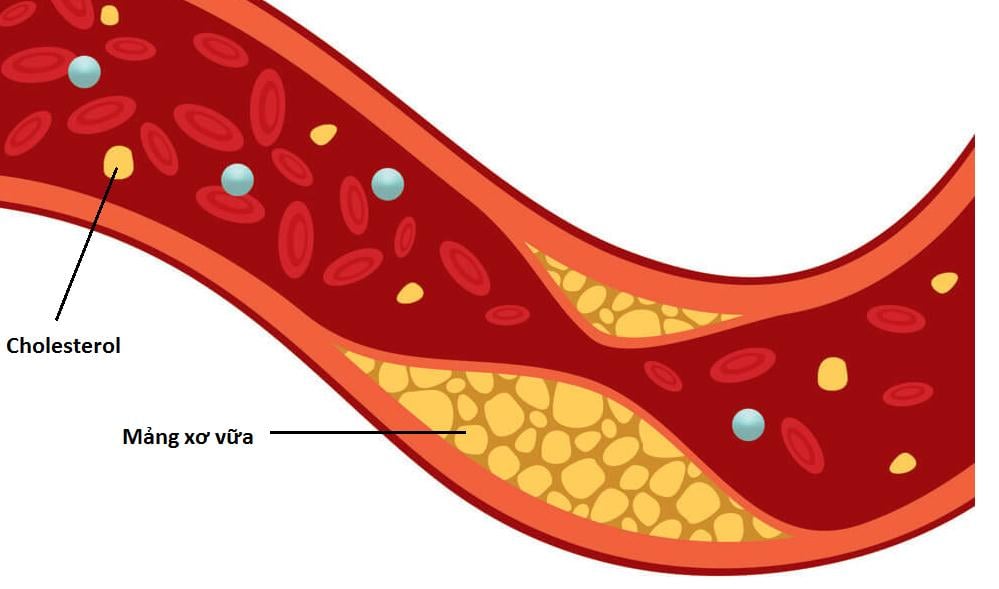
High bad cholesterol (LDL) can increase the risk of plaque buildup in the arteries, leading to serious heart disease.
4. Other health benefits of pumpkin seeds
Besides lowering cholesterol, pumpkin seeds also provide many other health benefits:
- Sleep aid: Pumpkin seeds are rich in tryptophan – an amino acid that helps produce serotonin and melatonin, which helps improve sleep.
- Improve bone health: With high magnesium and zinc content, pumpkin seeds help increase bone density and reduce the risk of osteoporosis.
- Immune system support: Zinc in pumpkin seeds plays an important role in maintaining immune function, increasing resistance to infection.
- Antioxidants: The antioxidant compounds in pumpkin seeds help reduce inflammation, protect cells, and limit damage caused by free radicals.
5. Notes when consuming pumpkin seeds
- Commercially available roasted or processed pumpkin seeds are often flavored with salt or sugar, which may reduce their heart benefits; choose whole seeds or roast them yourself at home.
- People taking medications for blood pressure, blood sugar, or blood thinners should consult their doctor before adding pumpkin seeds to their daily diet.
- Store pumpkin seeds in a sealed container, in a dry place, away from direct light to preserve quality and limit oxidation.
Pumpkin seeds are not only a delicious and fragrant snack, but also a superfood that helps reduce bad cholesterol, increase good cholesterol and improve cardiovascular health. With protein, fiber, polyunsaturated fats, vitamins, minerals and antioxidants, pumpkin seeds deserve to be considered an important part of a healthy diet.
By consuming pumpkin seeds in moderation – raw, roasted at home, or combined with other nutritious foods – you can naturally lower your cholesterol, improve your blood circulation, and maintain a healthy heart. Make pumpkin seeds a daily “helper” for a healthy heart and a healthy lifestyle.
Source: https://suckhoedoisong.vn/ha-cholesterol-tu-nhien-voi-hat-bi-ngo-169251101163009133.htm





![[Photo] Closing of the 14th Conference of the 13th Party Central Committee](https://vphoto.vietnam.vn/thumb/1200x675/vietnam/resource/IMAGE/2025/11/06/1762404919012_a1-bnd-5975-5183-jpg.webp)

![[Photo] Prime Minister Pham Minh Chinh receives the delegation of the Semiconductor Manufacturing International (SEMI)](https://vphoto.vietnam.vn/thumb/1200x675/vietnam/resource/IMAGE/2025/11/06/1762434628831_dsc-0219-jpg.webp)
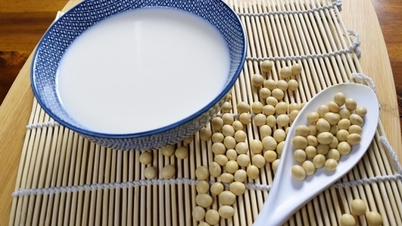



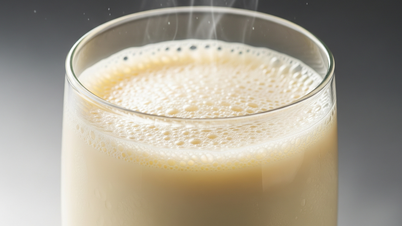
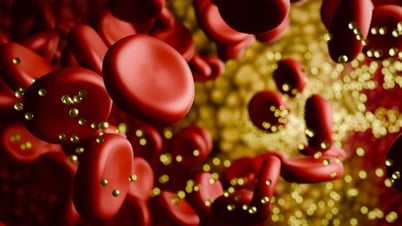

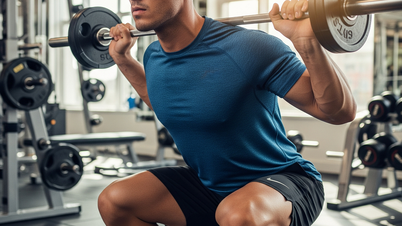






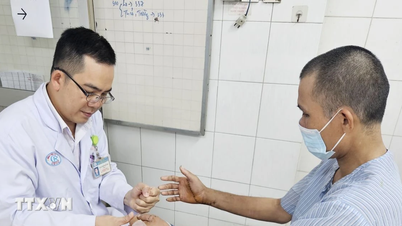







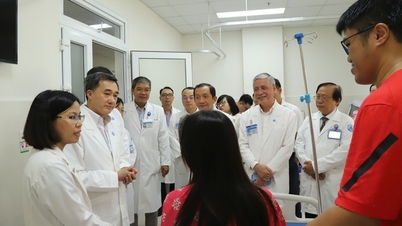

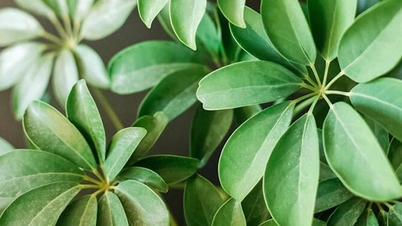















































































Comment (0)